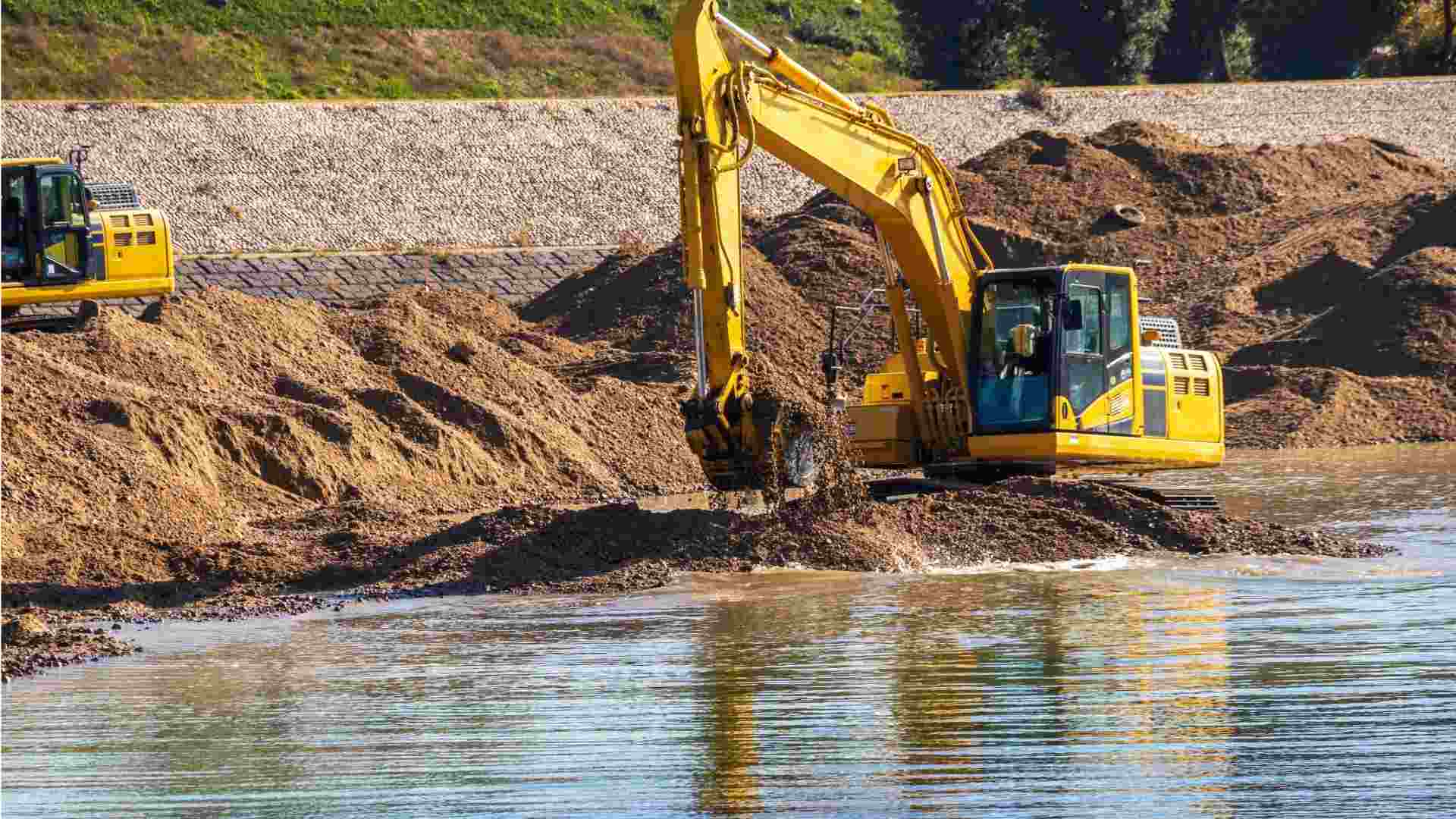Introduction
The Federal Executive Council (FEC) of Nigeria has taken a decisive step toward regulating sand dredging activities near Lagos waterways by approving a new set of environmental and operational regulations. The move comes in response to growing concerns about the negative impact of unregulated dredging on critical infrastructure, including bridges, ports, and shoreline stability, as well as the long-term ecological health of Nigeria’s coastal regions.
The new measures aim to ensure that sand dredging is carried out in a sustainable and controlled manner, safeguarding public infrastructure while protecting marine biodiversity and reducing the risk of environmental degradation.
The Rising Impact of Sand Dredging in Lagos
Sand dredging, the process of extracting sand from riverbeds, lagoons, or coastal areas for use in construction and land reclamation, has become increasingly prevalent in Lagos due to rapid urban development and infrastructure expansion. However, the widespread and often uncontrolled dredging operations have raised serious alarm among environmentalists, engineers, and policymakers alike.
Unregulated dredging activities have been linked to shoreline erosion, habitat destruction, and increased flood risk. More critically, dredging too close to bridge foundations and structural supports poses a major threat to public safety. The stability of key transport links like the Third Mainland Bridge and Eko Bridge has been cited as a pressing concern by infrastructure authorities.
In the absence of enforced guidelines, some operators have conducted dredging too close to shorelines and infrastructure, undermining the integrity of riverbanks and disrupting aquatic ecosystems.
FEC’s Intervention: A Policy Shift Toward Sustainability
At its latest meeting in Abuja, the Federal Executive Council approved a new framework for the monitoring and control of sand dredging across the country, with Lagos as a focal point. The framework includes the following key elements:
- Designated Dredging Zones: Operators will only be permitted to dredge in government-approved zones, located at a safe distance from bridges, jetties, and other infrastructure.
- Mandatory Environmental Impact Assessments (EIAs): All dredging projects must undergo and pass thorough environmental reviews before receiving permits. This ensures that the ecological and infrastructural implications are fully evaluated.
- GPS Monitoring of Operations: The federal government will implement digital tracking systems, including GPS monitoring, to ensure that operators do not exceed their permitted boundaries.
- Strict Penalties for Non-Compliance: Operators found dredging in prohibited areas or without valid licenses will face stiff penalties, including revocation of permits and potential legal action.
- Collaboration with State Authorities: The new policy emphasizes coordination between federal and state environmental agencies, including the Lagos State Ministry of Waterfront Infrastructure Development.
According to Environment Minister Balarabe Lawal, “The federal government is not against sand dredging, but it must be done responsibly. We need to protect our water bodies, infrastructure, and the millions of lives that depend on these ecosystems.”
Stakeholder Reactions and Industry Implications
The regulatory approval has generated mixed reactions among stakeholders. Environmental advocacy groups have applauded the move, calling it long overdue.
“Unchecked sand dredging has devastated many parts of Lagos’ coastal areas,” said Tunde Oladele of the Nigerian Conservation Foundation. “The FEC’s decision offers hope for more responsible environmental governance.”
On the other hand, some dredging operators have expressed concerns about potential delays and higher costs due to the new regulatory requirements. They have called on the government to ensure that the permit process is streamlined and that licensed operators are not unfairly penalized.
Industry associations, such as the Dredging and Sand Dealers Association of Nigeria (DASDAN), have welcomed the government’s focus on formalizing operations but have also asked for stakeholder consultations during the implementation phase.
Protecting Infrastructure and Ecosystems
Experts agree that responsible dredging practices are essential for balancing economic development with environmental protection. When properly regulated, sand dredging supports the construction industry, provides jobs, and even helps in flood control by deepening waterways.
However, without oversight, dredging can destabilize shorelines, destroy fish breeding grounds, and increase sedimentation in downstream areas. In Lagos, the proximity of dredging sites to key bridges, highways, and residential developments has intensified the urgency of intervention.
With rising sea levels and increasingly erratic weather patterns due to climate change, protecting natural buffers such as wetlands and mangrove forests has become more important than ever. Dredging operations that disrupt these natural defenses put entire communities at risk.
Looking Ahead: Enforcement and Public Participation
Implementation of the new sand dredging regulations will depend heavily on enforcement capacity and public cooperation. The federal government has pledged to deploy more monitoring officers and to partner with private firms for satellite-based surveillance of dredging zones.
Public awareness campaigns are also expected to roll out in coastal communities, informing residents about the risks of illegal dredging and how to report suspicious activities.
The Lagos State government has promised full cooperation with the federal initiative. “We will align our policies and enforcement efforts with the national directive,” stated a spokesperson from the state’s Ministry of Waterfront Infrastructure. “Dredging must be sustainable if we are to protect our bridges, waterfronts, and communities.”
Conclusion
The FEC’s approval of new regulations to control sand dredging near Lagos waterways marks a critical step in Nigeria’s effort to manage its natural resources more sustainably. By prioritizing infrastructure protection, ecological balance, and legal accountability, the government is sending a clear message: economic growth must not come at the cost of environmental collapse.
As Lagos continues to expand, and as construction demands soar, the challenge will be to ensure that dredging supports development without undermining the very foundations—both literal and environmental—on which the city stands. Responsible sand dredging is not just a policy necessity; it’s a path toward sustainable urban resilience.
